On August 21st, the Third National Teaching Innovation Competition for College Teachers was held in Zhejiang University, along with the New Liberal Arts Innovation and Development Forum. The forum was guided by the Department of Higher Education of the Ministry of Education, sponsored by the Chinese Society of Higher Education, hosted by Zhejiang University and organized by the College of Media and International Culture of Zhejiang University. More than 160 experts and scholars from colleges and universities across China attended the forum. The Ministry of Education, the Chinese Society of Higher Education, education administration, university leaders, invited experts and scholars attended the forum. Facing the change of the world, the change of the times and the change of history, the forum took keeping the right as the background color and innovation as the paintbrush, which provided new ideas for the construction of philosophical and social sciences with Chinese characteristics in the era of digital intelligence.
Jiang Enlai, vice president and secretary-general of China Society of Higher Education, and He Lianzhen, vice president of Zhejiang University, attended and delivered speeches. Huang Youfang, former president of Shanghai Maritime University and deputy head of the Ministry of Education's working group for the construction of new liberal arts, Yu Jianxing, party secretary of Zhejiang Gongshang University, Luo Weidong, president of Zhejiang University City College, and other experts delivered keynote reports. The forum was hosted by Wei Lu, Dean of the School of Media and International Culture of Zhejiang University, and Hong Yu, Vice Dean.
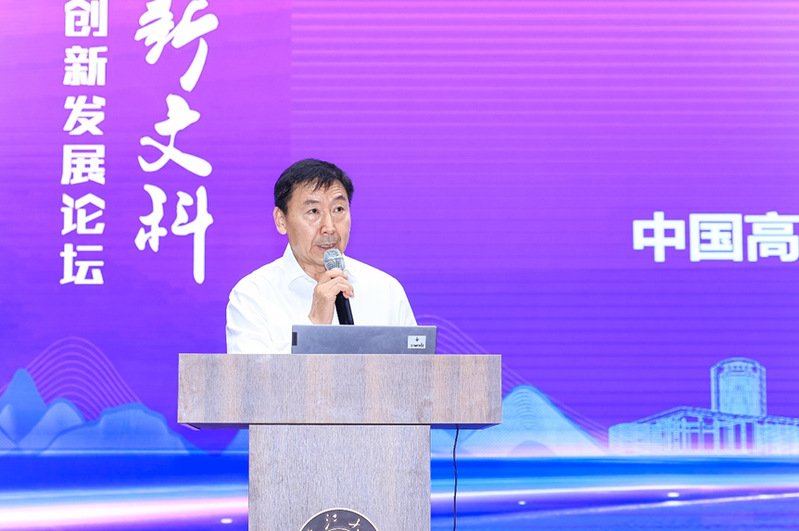
Speech by Jiang Enlai
Jiang Enlai pointed out that the construction of new liberal arts, students are the fundamental, academic is the foundation, disciplines are the support, in the face of the new situation, the new mission, to accelerate the higher education to recognize the change, respond to the change, seek change. First, we should take the direction of development, hold the correct orientation, and adhere to the guiding position of Marxism in the construction of new liberal arts. Secondly, focusing on the changes of the times, accelerating the innovation of theory and practice of new liberal arts. Thirdly, highlighting the student center, accelerating the comprehensive development system of new liberal arts in which students are the foundation, academics are the basis and disciplines are the support. Fourthly, we will be firm in cultural confidence and accelerate the construction of an autonomous knowledge system of new liberal arts with Chinese characteristics.
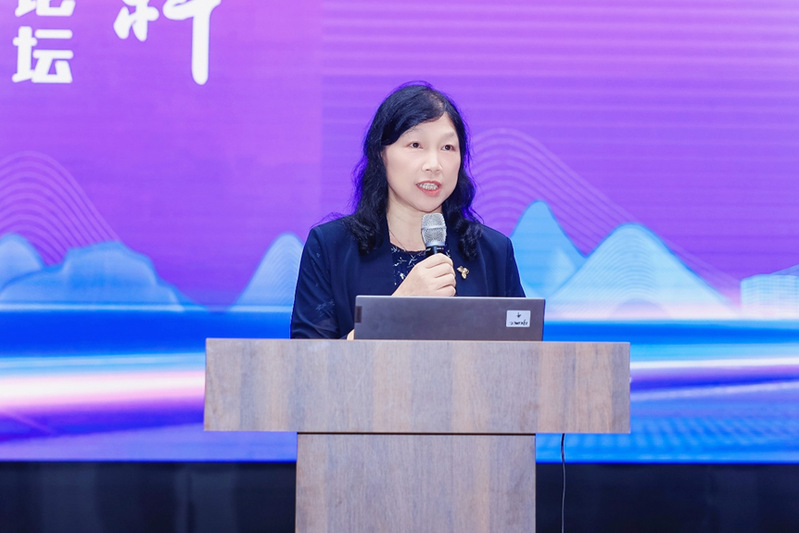
He Lianzhen delivered a speech and made a report
He Lianzhen said that the construction of new liberal arts toward high-quality and high-level development, we should create an excellent development environment, and give comprehensive support to the construction of new liberal arts in terms of resources, mechanisms and platform support. Secondly, it is necessary to strengthen systematic planning, promote the comprehensive revival of basic disciplines, the rapid rise of emerging disciplines, and the development of cross-disciplinary convergence. Third, we should always adhere to the philosophy of cultivating people, serving people, relying on people, and accomplishing people, and strive to cultivate and deliver more talents in new liberal arts for the country who are capable of assuming the great responsibility of the times. At the meeting, He Lianzhen made a report on the topic of The Age of Digital Intelligence and New Liberal Arts - Exploration and Practice of Zhejiang University.
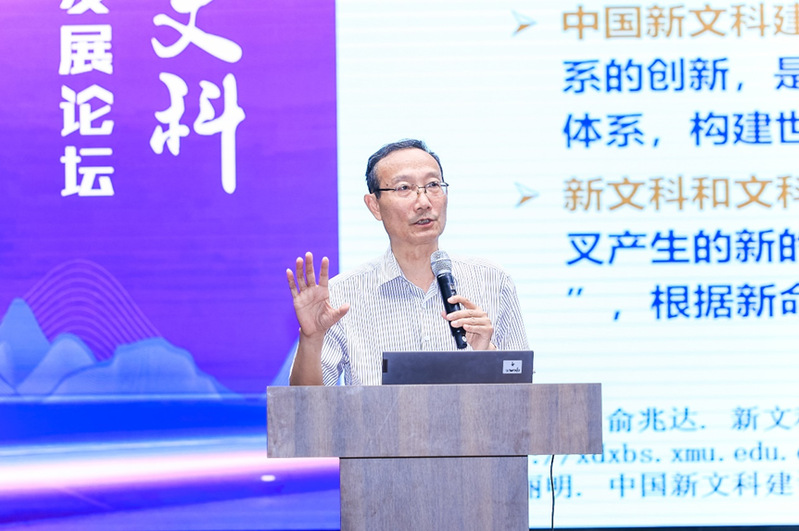
Huang Youfang gave a keynote speech
Huang Youfang gave a report on the topic of Digital Intelligence Technology Enabling the Innovative Development of New Liberal Arts. He believed that digital intelligence technology has promoted the changes in the related fields of new liberal arts: first, the change of the knowledge system of new liberal arts by integrating digital intelligence technology, second, the change of the discourse system of new liberal arts by integrating digital intelligence technology, and third, the change of the education system of new liberal arts by integrating digital intelligence technology. The digital intelligence emphasized today should be the embodiment of integrity and innovation.
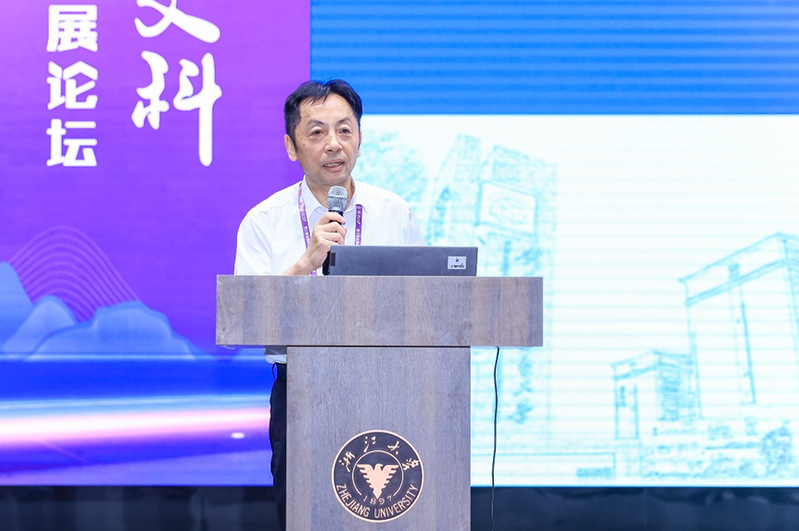
Xia Wenbin gave a keynote speech
Xia Wenbin, former president of the University of International Business and Economics (UIBE), gave a report on the topic of New mission of liberal arts education under the perspective of new liberal arts, pointing out that liberal arts education should achieve four changes: from the previous platter-type of knowledge collection to the development of China's independent knowledge system of liberal arts education, from the past increase in the amount of integration of academic disciplines to the qualitative leap in the intersection of disciplines in the new liberal arts, and from the subject-object dichotomy pedagogy to the construction of inter-subjectivity teaching community. From the dichotomous pedagogy to the construction of inter-subjective teaching community, from instrumental rationality to value rationality, from practical rationality to new humanism.
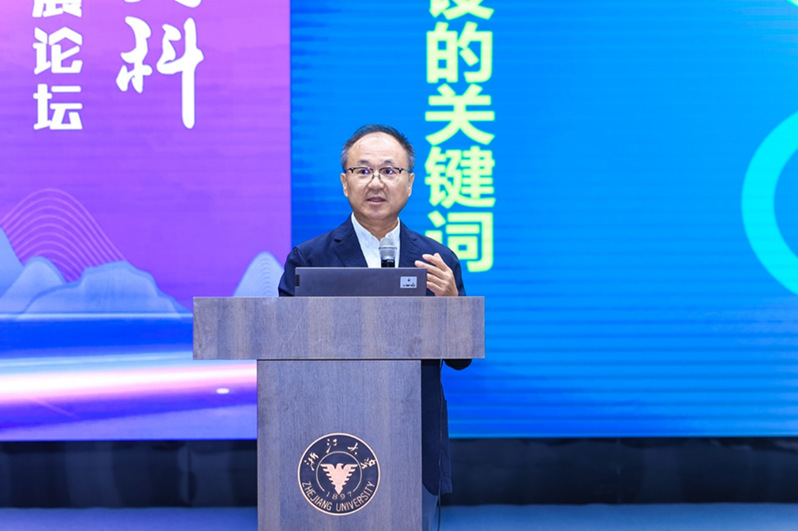
Hu Zhengrong delivered a keynote speech
Hu Zhengrong, Director of the Institute of Journalism and Communication of the Chinese Academy of Social Sciences, made a presentation on China's Autonomous Knowledge System, the Construction of New Liberal Arts, and the New Formation of Teachers' Teaching and Research--Taking Journalism and Communication as an Example. He pointed out that research should be autonomous, teaching should be integrated, and education should be systematized. The construction of disciplines and specialties should ultimately serve the cultivation of talents, but the cultivation of talents is not only teaching and research, but also education.
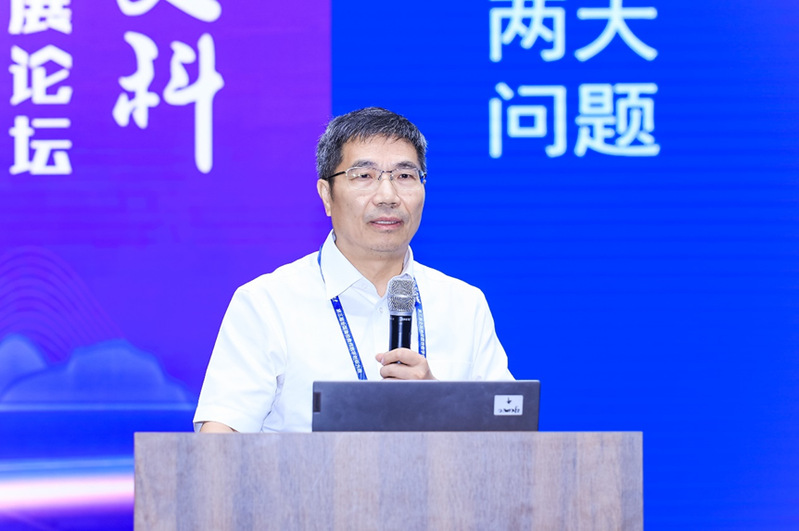
Luo Weidong delivered a keynote speech
Focusing on the theme of Digital Transformation of Philosophy and Social Science Research, Luo Weidong pointed out that the transformation of traditional philosophy and social sciences not only requires a broader vision and broad-mindedness, but also needs to pay attention to the relationship between new technologies and modern social science research, such as paying attention to the developmental stages of philosophy and social science transformation in the quest for computational social sciences, Internet (big data) + social sciences, laboratory + social sciences, and other social sciences. social sciences, laboratory + social sciences and other stages of development.
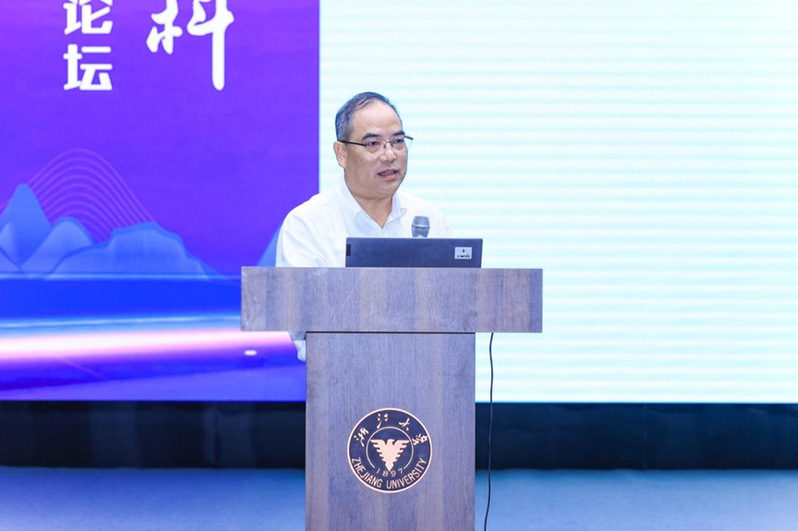
Yu Jianxing delivered a keynote speech
Yu Jianxing made a presentation titled The World Significance of Constructing China's Own Knowledge System, in which he argued that the construction of China's own knowledge system requires recognizing the significance of the digital technology revolution, reconfiguring the research paradigm of the social sciences, promoting the innovation of concepts, theories, and methodologies, and perfecting the discourse system that is oriented to human beings and the future. At the same time, we should promote the construction of teaching materials and the whole life-cycle system of educating people and talents.
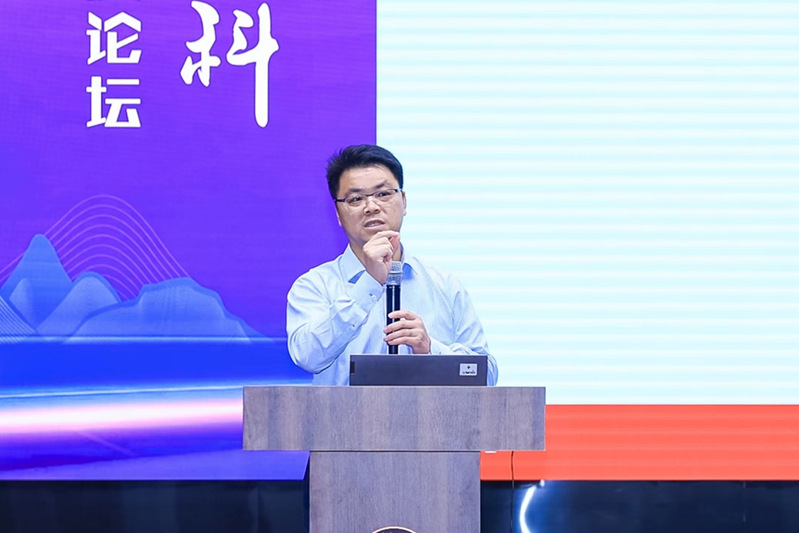
Cheng Jinhua delivered a keynote speech
Mr. Cheng Jinhua, Vice Dean of Graduate School of Shanghai Jiaotong University and Distinguished Professor of Kay Yuan School of Law, gave a keynote speech on the topic of New Legal Science: Disciplinary Connotation and Talent Cultivation, in which he summarized the development of legal science. The first stage is the agricultural era, there is no independent legal education and talent training system; the second stage is the period of modern society since the Renaissance, the legal science presents the development characteristics of internal and external scientization. Today, the new legal science is a specialization based on the integration of disciplines.
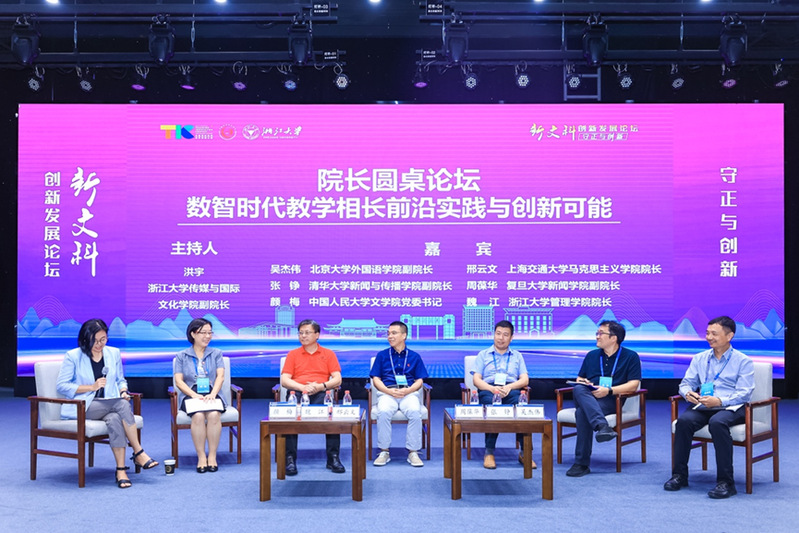
During the forum, a dean's roundtable forum was held, in which experts such as Wu Jiewei, vice dean of the School of Foreign Languages of Peking University, Zhang Zheng, vice dean of the School of Journalism and Communication of Tsinghua University, Yan Mei, secretary of the Party Committee of the School of Arts and Letters of Renmin University of China, Xing Yunwen, dean of the School of Marxism of Shanghai Jiaotong University, Zhou Baohua, vice dean of the School of Journalism of Fudan University, and Wei Jiang, dean of the School of Management of Zhejiang University, held an in-depth exploration on the connotations of the New Liberal Arts in the era of Digital Intelligence, the importance of the development of emerging disciplines and cross-cutting disciplines, the expansion of the boundaries of the disciplinary knowledge system, the focus of the reform of the teaching and learning, and the benign interactions of teaching and learning, among others.

